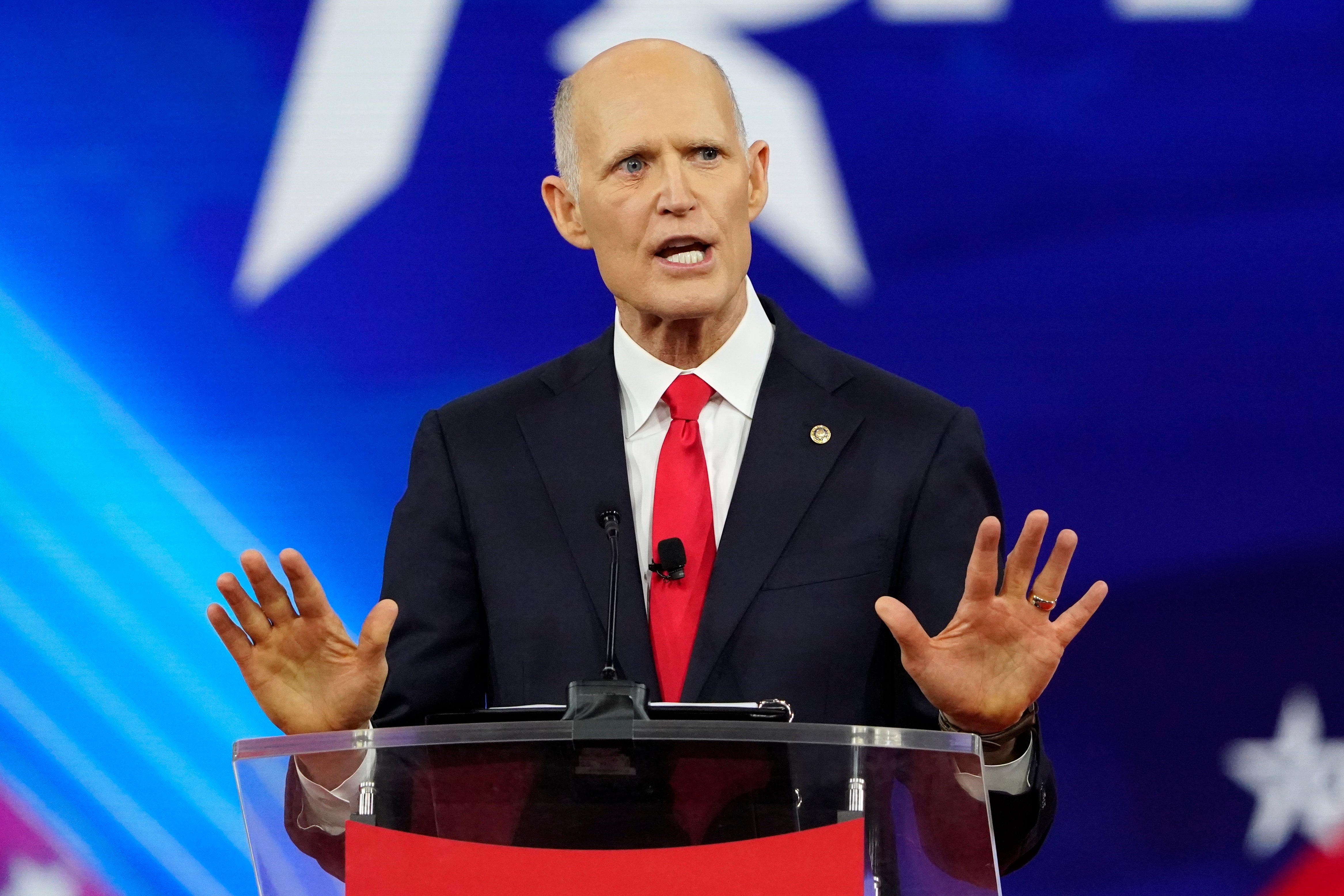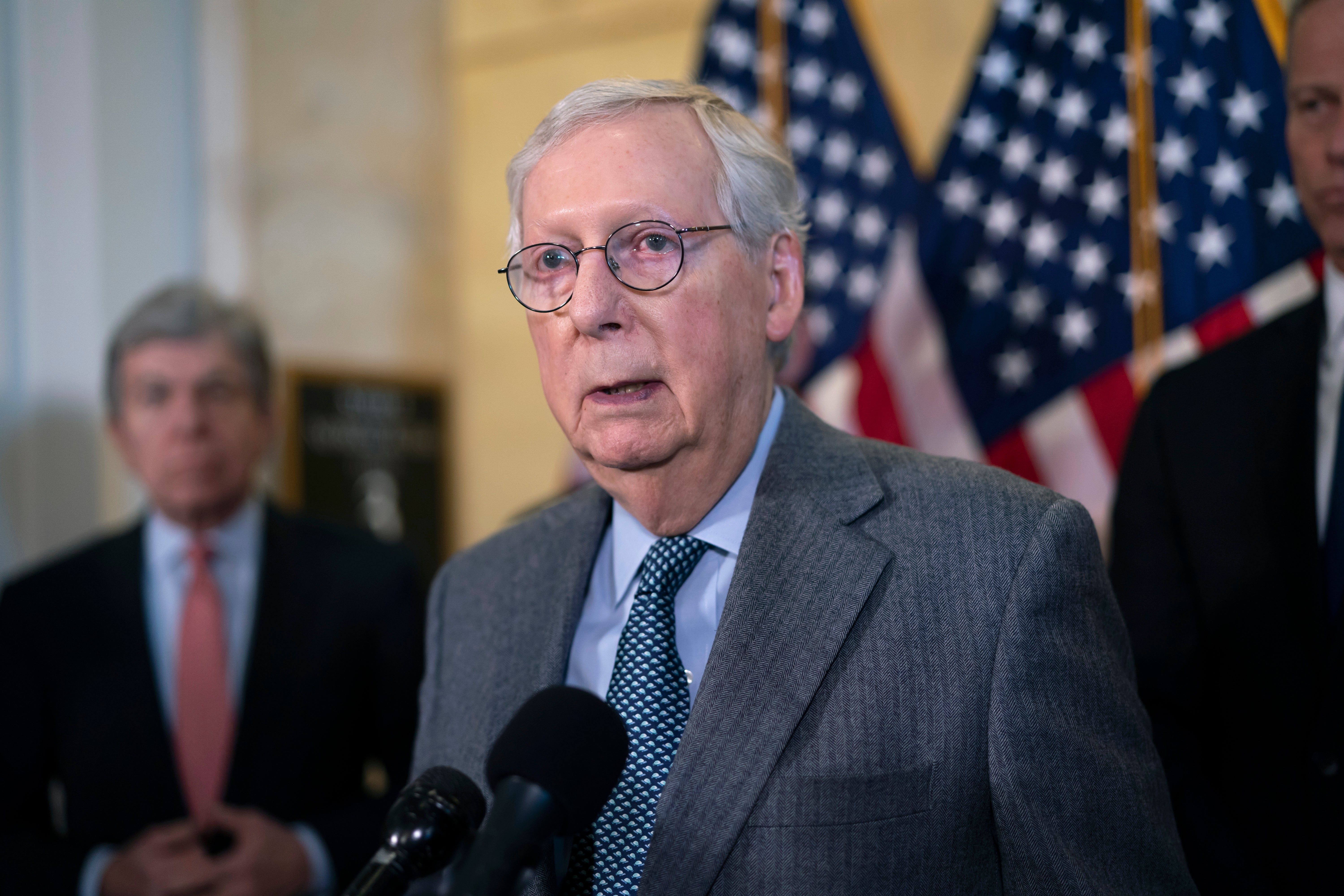Why Democrats, Republicans and GOP Senator Rick Scott are all fighting over his tax proposal
Republican plan calls for millions more to pay income taxes
Your support helps us to tell the story
From reproductive rights to climate change to Big Tech, The Independent is on the ground when the story is developing. Whether it's investigating the financials of Elon Musk's pro-Trump PAC or producing our latest documentary, 'The A Word', which shines a light on the American women fighting for reproductive rights, we know how important it is to parse out the facts from the messaging.
At such a critical moment in US history, we need reporters on the ground. Your donation allows us to keep sending journalists to speak to both sides of the story.
The Independent is trusted by Americans across the entire political spectrum. And unlike many other quality news outlets, we choose not to lock Americans out of our reporting and analysis with paywalls. We believe quality journalism should be available to everyone, paid for by those who can afford it.
Your support makes all the difference.Democrats and Republicans alike are turning their fire on a tax proposal from a newcomer in the Senate who is learning a hard lesson about party seniority.
Sen Rick Scott, the Republican governor-turned-lawmaker who joined the US Senate in 2019, currently finds himself alone facing criticism from both his traditional rivals as well as leaders in his own party.
At issue is a proposal Mr Scott released in February titled the “11-Point Plan to Rescue America”, a wide-ranging policy agenda meant to outline his party’s political priorities in the very good chance that the GOP retakes the Senate next year.
The plan touches on numerous political issues from immigration to culture war issues like attempts to erase government recognition of gender identity, but both parties are focused on one main point of the plan: Taxes.
Specifically, Mr Scott’s plan condemns millions of Americans for, as he seems to characterise it, not paying their fair shares of income taxes to the federal government. And it calls for such a tax to be expanded to millions of voters, mostly lower or middle income, who would undoubtedly see their tax burdens rise.
“All Americans should pay some income tax to have skin in the game, even if a small amount. Currently over half of Americans pay no income tax,” reads Mr Scott’s plan, which is outlined on a website designed by the lawmaker’s staff.
And there’s another issue: A provision in the plan that would end, or “sunset”, all federal programs after just five years, requiring Congress to continually vote to reauthorise their existence. That requirement, in theory a waste-reduction practice, would clearly endanger the existence of major government programs like Social Security, Medicare, Medicaid, and other government works over which the two parties in the evenly-divided Senate fiercely disagree. The result would undoubtedly be major battles over the reauthorisation of such programs every few years.

Those two ideas brought forth by Mr Scott appear to be non-starters for both Democrats, which is unsurprising, but also Republicans like Senate Minority Leader Mitch McConnell who has flatly rejected the idea of pursuing Mr Scott’s plan should his party retake the Senate.
"We will not have as part of our agenda a bill that raises taxes on half the American people and sunsets Social Security and Medicare within five years," Mr McConnell said at a news conference where only moments beforehand he had been flanked by Mr Scott, who exited the event as the Senate minority leader began speaking.
"That will not be part of the Republican Senate Majority agenda,” the GOP leader continued. “We will focus instead on what the American people are concerned about: inflation, energy, defense, the border and crime."

Mr McConnell’s opposition to the plan appeared to be a clear nod to the understanding that a suggestion of raising taxes on millions of Americans and threatening the very existence of major government welfare programs during a crucial election year was bad strategy.
While many Republican lawmakers frequently call for cuts to Medicare and Social Security (or even their privatisation), the party has a long track record of avoiding efforts to turn back the clock on government programs that they once or even currently opposed. The most recent example of that stance is the party’s strategy regarding the Affordable Care Act; the GOP-controlled Senate failed to repeal it in 2017, and Republicans have totally rejected the idea of pursuing its repeal again should they be in the majority next year.
Even so, Democrats and the White House have pounced on Mr Scott’s plan as evidence that the GOP still seeks to threaten major works of public welfare, an argument that could be persuasive particularly among older voters who are more likely to vote with those issues in mind in the months ahead.
“Republicans complain that middle-class Americans don’t have "skin in the game" and don’t pay enough in taxes,” read a White House fact sheet released on Friday, the traditional deadline for tax filings in the US.
“[T]he truth is that middle-class Americans … in many cases pay a higher rate than the super-wealthy,” the Biden team noted.
White House press secretary Jen Psaki was even more succinct in her ridicule when tweeting about the issue in February.
“.@SenRickScott and Senate Republicans just released an economic plan that doesn’t include a single proposal to lower prices for the middle class. Instead he wants to raise taxes on half of Americans – including on seniors and working families. Seriously, that’s their plan,” she quipped.
Mr Scott has endured the ridicule for weeks, and during remarks at a recent event hosted by the conservative Heritage Foundation tried to back away from the demand that more Americans pay income tax entirely.
"Democrats are lying about the plan, and Republicans are parroting what they’re saying," he told the crowd, claiming: "I’m not going to raise taxes on anybody."
He also clashed with a guest host of Fox News Sunday, John Roberts, who wouldn’t let him deny that his plan called for a tax increase when the senator insisted it was a “Democratic talking point”.
“It’s in the plan!” an incredulous Mr Roberts interjected, laughing.
Mr Scott is not up for reelection this year, but if the White House and his Democratic foes in the Senate have any say about the November election will still be a referendum on his ideas. Complicating the issue for Mr McConnell is the lack of a GOP alternative agenda that does not include income tax increases or a sunset clause targeting major government programs.
Republicans currently enjoy a slim lead over Democrats in a FiveThirtyEight average of generic ballot polling regarding which party voters want to see controlling Congress next year.



Join our commenting forum
Join thought-provoking conversations, follow other Independent readers and see their replies
Comments